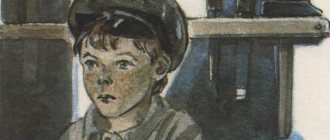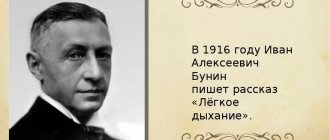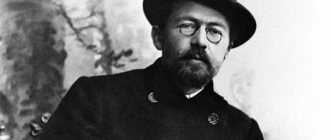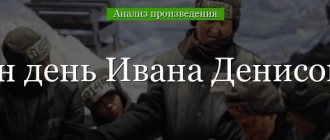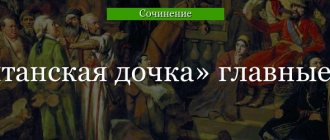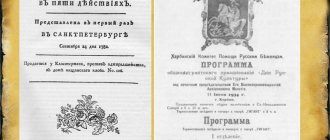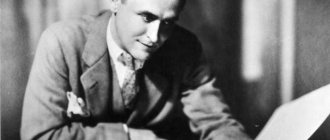Cavalry
How Babel’s attitude towards the cavalrymen changed can be judged from his diary. At first, he tried to find in them the features of a new, spiritually reborn people, but gradually became disillusioned, called the fighters “a beast with principles” and awarded them with a whole cloud of unflattering associations: “junk, daring, bestial cruelty, velvet caps, rape, forelocks, battles, revolution and syphilis." The Cossacks who joined Budyonny were particularly cruel, and in addition, they had to get their own horses, weapons and food. Once in peaceful settlements, they robbed, burned houses and killed anyone who tried to resist them. At the same time, Babel’s cavalrymen are both robbers and heroes, not devoid of peculiar ideas of honor, which partly compensate for causeless cruelty. Mikhail Weiskopf even claims that “under the pressure of censorship and self-censorship, he incredibly ennobled the cavalrymen”
6 Weiskopf M. Between the walls of fire. Book about Isaac Babel. M.: Knizhniki, 2021. P. 427. .
The best illustration of who Babel’s character is is the story “Salt,” written in the form of a letter from a cavalryman to a newspaper (“Dear comrade editor. I want to describe to you the women who are harmful to us for their lack of consciousness”). He talks about how the soldiers let a woman with a baby on the train and treat her with unusual respect, as if they were the collective mother figure that every Bolshevik has. However, it turns out that the woman is not carrying a child, but contraband - a bag of salt. Having discovered the deception, the soldiers throw the woman off the train and kill her with a rifle. The main principle of the cavalrymen is revolutionary justice, understood, of course, in its own way. Everything that benefits the revolution deserves life, but beyond this usefulness, human personality and life, including their own, are worth nothing. Another striking illustration of the cavalrymen’s ideas about the value of human life is the “Letter,” in which a boy, interspersed with everyday details and concern about his horse’s mange, talks about the murder of his White Guard father (“... and Semyon Timofeich sent me away from the yard, so I can’t , dear mother Evdokia Fedorovna, to describe to you how they killed dad, that’s why I was sent away from the yard. <...> I remain your dear son Vasily Timofeich Kurdyukov. Mom, look until Styopka, and God will not leave you"). Another important story is “The Death of Dolgushov,” in which Lyutov does not dare to finish off a mortally wounded soldier, although this is necessary so as not to leave him to be torn to pieces by the Poles: “Afonka... shot Dolgushov in the mouth. “Afonya,” I said with a pitiful smile and drove up to the Cossack, “but I couldn’t.” “Go away,” he answered, turning pale, “I’ll kill you!” You, bespectacled ones, pity our brother like a cat does a mouse...” Here Babel clearly contrasts the humanism of his alter ego with the cavalry soldiers in such a way that it becomes clear: the destruction of the value system that the revolution brings requires a deeper analysis; values are no longer universal - principles are more important. The “economic justice” of the cavalrymen is reflected in the stories about how they get their horses: “There is a groan in the village. The cavalry poisons grain and changes horses. In return for the attached nags, the cavalrymen take the draft animals. There is no one to scold here. There is no army without a horse” (“Chief of the Reserve”). In the story “The Story of One Horse,” you can also see how the fighters understand communism: “The Communist Party... was founded, I believe, for joy and solid truth without limit.” Their ideas about honor are reflected in their own way in the story “Prischepa”, in which a fighter who fled from the whites massacres the entire village for plundering the property in his house, and then burns the house.
“Cavalry”, analysis of the collection of stories by Isaac Babel
One of the most complex themes in literature about the Civil War of 1918-1920 in Russia was the entry of the intellectual hero into the revolution.
In the state of victorious socialism, where workers and peasants became the main classes, there was no place for representatives of the intelligentsia. With the light hand of D. Furmanov and his hero - the legendary division commander Vasily Ivanovich Chapaev - the motto of the era became the phrase: “We did not graduate from universities,” commenting on the famous thesis of V.I. Lenin that every cook can rule the state.
Consequently, the need for competent people, professionals in their field, disappeared by itself.
The most important drawback of intelligent people was considered to be their “softness” - the inability to be “iron,” that is, to make tough decisions and ruthlessly deal with the enemies of the revolution.
This problem is most clearly illuminated in the book “Cavalry” by Isaac Babel. Babel is a participant in the Civil War.
In 1920, taking the pseudonym Kirill Vasilyevich Lyutov (that would be the name of the hero-narrator in “Cavalry”), he joined the First Cavalry Army as a correspondent for the newspaper “Red Cavalryman”.
Babel's position among the Red Army soldiers was difficult. G. Belaya, a researcher of his work, very accurately and succinctly described him: “A Jew among the Cossacks,” he was doomed to loneliness.
An intellectual whose heart shuddered at the sight of cruelty and the destruction of culture, he could have been doubly doomed to loneliness.” His position, according to G.
Belaya, can be expressed as follows: “inseparability and non-fusion with the revolution.”
This tragedy is most clearly expressed in the story “My First Goose” .
It describes the arrival of the narrator to the First Cavalry division, where he immediately feels like a second-class man, because he is literate, and in the assessment of the division commander, he is “lousy, glasses on his nose,” for which they are “cut.”
The fact that the narrator is a candidate of rights at St. Petersburg University also does not do him credit - it means that he is “from the Kinderbalms,” that is, a mama’s boy. The Cossacks greet him with hostility: they throw the chest out the gate, mock him, reaching to the basest instincts.
To feed himself, Lyutov has to kill a goose walking around the yard. And only when “the goose’s head cracked under the boot, cracked and flowed,” one of the Cossacks said: “The guy is right for us.”
It turns out that you can merge with the revolutionary masses only by committing murder, essentially proving your ability to commit violence and cruelty. Only the narrator’s heart, “stained with murder,” “creaked and flowed” in his sleep.
This meant that Kirill Lyutov, accepted into the circle of Red Army soldiers, would never become like them, because even in a dream he could not forget about the cost of such an act.
Lyutov is in many ways the opposite of these people. The difference in their positions and views, the very principles by which the internal world of the Cossacks is organized, is clearly visible in the story “Letter” . The work quotes verbatim a letter from his mother, dictated to the narrator by Vasily, the youngest in the Kurdyukov family.
In the first lines of the letter, he asks to “slaughter the speckled boar” and wash the legs of the horse left at home from scabies. And only afterwards is it reported that “daddy chopped up Fyodor Timofeich Kurdyukov’s brother,” and then another brother, Semyon Timofeich, “finished daddy.”
The boy writes with pity that he cannot describe in detail how all this happened, because “he was sent away from the yard.”
The author is confident that this letter “does not deserve to be forgotten” because it is evidence of a terrible distortion of consciousness during the Civil War era, the loss of even the most primitive ideas about the distinction between good and evil, cruelty and mercy.
Lyutov himself cannot accept murder, even if it is a necessary measure. In the short story “The Death of Dolgushov,” a Cossack mortally wounded in the stomach asks Lyutov to “waste a cartridge on him.” For him, this is a real salvation, because “the gentry will rush in and make a mockery.”
It will no longer be possible to save him: “The stomach was torn out, the intestines crawled onto his knees and the heartbeats were visible.” But even in this situation, the narrator cannot step over human blood. Cossack Afonka Bida will do this for him. Putting a pistol in his mouth and shooting - this step is also not easy for Afonka: it is not for nothing that he then threatens to kill Lyutov himself.
So the author emphasizes how painful a choice can be for a person in war.
Sometimes, according to Babel, it is almost impossible to make the right choice, because it is impossible to distinguish a lie from the truth. The hero of the story “Gedali” , an old Jew, a “tiny” old man in smoky glasses, “dressed in an amusing green frock coat that reaches the floor,” in his old shop keeps the memory of humanity in the midst of general unconsciousness.
This is a “little man” whose dreams of happiness are very simple. He knows: the revolution proclaimed that it was being carried out for ordinary people, in the name of man and “has the goal of establishing his happiness.”
However, Gedali cannot understand why counter-revolution and revolution are no different. Both here and there they shoot and kill, but good people should not kill. “Revolution is a good deed of good people,” Gedali is sure.
But if they kill, does that mean they are bad people?
The old Jew asks the narrator to explain where the revolution is and where the counter-revolution is. He, a lonely little thinker, dreams of another revolution. He wants there to be an “International of good people” who do not eat with gunpowder, seasoning with blood. These should be those who will come to people “with goodness, with God on their lips and in their souls.”
Almost such a person will appear in another story of “Cavalry”: the short story “Pan Apolek” expresses the author’s thought about the brotherhood of all people. He wants to follow the example of the hero, a strange artist who paints people as saints during their lifetime.
Apolek tells Lyutov “the Gospel hidden from the world” - the story of Jesus and Deborah. Their son is hidden by the priests - which means that every living person could be a descendant of Jesus. According to Mr. Apolek, he is.
There is a piece of God in every person; to see it, record it, remind people themselves about it - this is the main meaning of Apolek’s work.
Then the narrator, having felt all the “charm and wisdom” of the life of Mr. Apolek, calls for sacrifice to the new vow “the sweetness of dreamy malice, bitter contempt for the dogs and pigs of humanity, the fire of silent and intoxicating vengeance” - everything that separates people.
This idea did not save Isaac Babel: his book received a negative assessment from the Soviet leadership, and in 1940 he was shot, and his works were banned until the end of the 50s.
Samosadina Ekaterina
- Isaac Babel, short biography
According to the writer: Babel Isaac
Source: https://goldlit.ru/babel-isaac/607-konarmiya-analiz
Isaac Babel,
The Soviet writer and playwright Isaac Babel became famous for his works. “Cavalry” (a brief summary below) is his most famous work.
First of all, this is due to the fact that it initially contradicted the revolutionary propaganda of that time. S. Budyonny and K. Voroshilov received the book with hostility.
The only reason the work was published was the intercession of Maxim Gorky.
Babel, “Cavalry”: summary
"Cavalry" is a collection of short stories that began publishing in 1926. The work is united by a common theme - the civil war of the early 20th century. The basis for writing was the author’s diary entries during his service in the 1st Cavalry Army, commanded by S. Budyonny.
"My first goose"
The collection “Cavalry” opens with this story. The main lyrical character and narrator Lyutov, who works for the newspaper "Red Cavalryman", falls into the ranks of the 1st Cavalry Army under the command of Budyonny. The 1st Cavalry is fighting with the Poles, so it passes through Galicia and Western Ukraine. Next comes a depiction of military life, where there is only blood, death and tears. They live here one day at a time.
The Cossacks mock and mock the intellectual Lyutov. And the owner refuses to feed him. When he became incredibly hungry, he came to her and demanded to feed himself. And then he went out into the yard, took a saber and killed the goose. After which he ordered the hostess to prepare it. Only after this the Cossacks began to consider Lyutov almost one of their own and stopped ridiculing him.
"The Death of Dolgushov"
The collection of stories by Isaac Babel continues the story of telephone operator Dolgushov. One day Lyutov comes across a mortally wounded colleague who asks him to finish him off out of pity. However, the main character is not capable of killing even to ease his fate.
Therefore, he asks Afonka to approach the dying man. Dolgushov and the new assistant are talking about something, and then Afonka shoots him in the head.
The Red Army soldier, who has just killed a comrade, angrily rushes at Lyutov and accuses him of unnecessary pity, which will only cause harm.
“Biography of Pavlichenko, Matvey Rodionich”
Babel (“Cavalry”) pays a lot of attention to its main character. The summary again tells about the mental anxieties of Lyutov, who secretly envies the determination and firmness of the Cossacks. His main desire is to become one of them.
Therefore, he strives to understand them, listens carefully to the general’s story about how he dealt with the master Nikitsky, whom he served before the revolution. The owner often pestered Matvey’s wife, so as soon as he became a Red Army soldier, he decided to take revenge for the insult. But Matvey did not shoot Nikitsky, but trampled him to death in front of his wife’s eyes.
The general himself says that shooting is mercy and pardon, not punishment.
"Salt"
Babel reveals the fate of ordinary Red Army soldiers in his work. “Cavalry” (the summary confirms this) is a unique illustration of post-revolutionary reality. So, Lyutov receives a letter from the cavalryman Balmashev, who talks about the incident on the train. At one of the stations, the fighters picked up a woman and a child and let them into their carriage.
However, gradually doubts began to creep in. Therefore, Balmashev tears off the diapers, but instead of a child he finds a bag of salt. The Red Army soldier becomes enraged, attacks the woman with an accusatory speech, and then throws her out of the train. Despite the fall, the woman remained unharmed.
Then Balmashev grabbed a weapon and shot her, believing that in this way he washed away the shame from the working people.
"Letter"
Isaac Babel portrays not only adult fighters, but also children. “Cavalry” is a collection in which there is a work dedicated to the boy Vasily Kurdyukov, who writes a letter to his mother. In the message, he asks to send some food and tell him how the brothers fighting for the Reds are doing.
It immediately turns out that Fyodor, one of the brothers, was captured and killed by his own father, fighting on the side of the whites. He commanded Denikin’s company, and he killed his son for a long time, cutting off the skin piece by piece. After some time, the White Guard himself was forced to go into hiding, having dyed his beard for this.
However, his other son Stepan found his father and killed him.
"Clothespin"
The next story was dedicated to the young Kuban resident Prishchepa by Isaac Babel (“Cavalry” talks about this). The hero had to escape from the whites who killed his parents.
When the enemies were driven out of the village, Prishchepa returned, but the neighbors managed to plunder all the property. Then he takes a cart and goes through the yards to look for his goods.
In those huts in which he managed to find things that belonged to his parents, Prishchepa leaves hanging dogs and old women over wells and icons soiled with droppings.
When everything was collected, he puts things back in their original places and locks himself in the house. Here he drinks continuously for two days, chops tables with a saber and sings songs. And on the third night, flames began to rise above his house. Clothespin goes to the barn, takes out the cow left from the parents, and kills it. After that, he gets on his horse and rides off wherever his eyes lead him.
"The Story of a Horse"
This work continues Babel's stories "Cavalry". For a cavalryman, a horse is the most important thing; he is a friend, a comrade, a brother, and a father. One day, the commander Savitsky took the white horse from the commander of the first squadron, Khlebnikov. Since then, Khlebnikov harbored a grudge and waited for an opportunity to take revenge.
And as soon as Savitsky lost his position, he wrote a petition asking that the stallion be returned to him. Having received a positive answer, Khlebnikov went to Savitsky, who refused to give up the horse. Then the commander goes to the new chief of staff, but he drives him away.
Then Khlebnikov sits down and writes a statement that he is offended by the Communist Party, which is not able to return his property. After this, he is demobilized, as he has 6 wounds and is considered disabled.
"Pan Apolek"
Babel’s works also touch on the church theme. “Cavalry” tells the story of the god Apolek, who was entrusted with painting the Novgorod church in the new church. The artist presented his diploma and several of his works, so the priest accepted his candidacy without questions. However, when the work was delivered, employers were very indignant.
The fact is that the artist turned ordinary people into saints. Thus, in the image of the Apostle Paul one could discern the face of the lame Janek, and Mary Magdalene was very similar to Elka, a Jewish girl, the mother of a considerable number of children from the fence. Apolek was driven out, and another bogomaz was hired in his place. However, he did not dare to paint over the creation of someone else’s hands.
Lyutov, Babel’s double from Cavalry, met the disgraced artist in the house of an escaped priest. At the first meeting, Mr. Apolek offered to make his portrait in the image of Blessed Francis for only 50 marks. In addition, the artist told a blasphemous story about how Jesus married a rootless girl, Deborah, who gave birth to a son from him.
"Gedali"
Lyutov encounters a group of old Jews who are selling something near the yellowed walls of the synagogue. The hero begins to remember with sadness the Jewish life, which has now been destroyed by the war. He also remembers his childhood, his grandfather, who stroked the numerous volumes of the sage of the Jews Ibn Ezra. Lyutov goes to the market and sees locked trays, which he associates with death.
Then the hero comes across the shop of the ancient Jew Gedali. Here you can find anything: from gold-plated shoes to broken pots.
The owner himself rubs his white hands, walks along the counters and complains about the horrors of the revolution: everywhere they suffer, kill and rob. Gedali would like another revolution, which he calls “an international of good people.”
However, Lyutov does not agree with him; he argues that the international is inseparable from rivers of blood and gunpowder shots.
The hero then asks where he can find Jewish food. Gedali reports that previously this could be done in the neighborhood, but now they only cry there and do not eat.
"Rabbi"
Lyutov stopped in one of the houses for the night. In the evening, the whole family sits down at the table, headed by Rabbi Motale of Bratslav. His son Ilya also sits here, with a face similar to Spinoza. He fights on the side of the Red Army. In this house there is despondency and one feels that death is imminent, although the rabbi himself calls on everyone to rejoice that they are still alive.
With incredible relief, Lyutov leaves this house. He goes to the station, where the First Horse train is already standing, and the unfinished newspaper “Red Cavalryman” is waiting in it.
Analysis
He created an indissoluble artistic unity of all Babel’s stories (“Cavalry”). Analysis of the works emphasizes this feature, as a certain plot-forming connection is revealed. Moreover, the author himself forbade changing the places of the stories when reprinting the collection, which also emphasizes the significance of their arrangement.
I united the cycle with one composition Babel. “Cavalry” (analysis allows us to verify this) is an inextricable epic-lyrical narrative about the times of the Civil War.
It combines naturalistic descriptions of military reality and romantic pathos. There is no author's position in the stories, which allows the reader to draw their own conclusions.
And the images of the hero-narrator and the author are so intricately intertwined that they create the impression of the presence of several points of view.
"Cavalry": heroes
Kirill Vasilyevich Lyutov is the central character of the entire collection. He acts as a narrator and as an involuntary participant in some of the events described. Moreover, he is Babel's double from Cavalry. Kirill Lyutov was the author’s pseudonym when he worked as a war correspondent.
Lyutov is a Jew, abandoned by his wife, he graduated from St. Petersburg University, his intelligence prevents him from intermarrying with the Cossacks. For the fighters, he is a stranger and only causes condescension on their part. Essentially, he is an intellectual who is trying to reconcile humanistic principles with the realities of the revolutionary era.
Pan Apolek is an icon painter and an old monk. He is an atheist and a sinner who blasphemously treated the painting of a church in Novgorod. In addition, he is the bearer of a huge stock of distorted biblical stories, where saints are depicted as subject to human vices.
Gedali is the owner of an antiquities shop in Zhitomir, a blind Jew with a philosophical character. He seems ready to accept the revolution, but he doesn’t like that it is accompanied by violence and blood. Therefore, for him there is no difference between counter-revolution and revolution - both bring only death.
"Cavalry" is a very frank and merciless book. The reader finds himself in the usual harsh military reality, in which spiritual blindness and truth-seeking, tragic and funny, cruelty and heroism are intertwined.
Source: https://FB.ru/article/231177/isaak-babel-konarmiya-kratkoe-soderjanie-analiz-geroi
